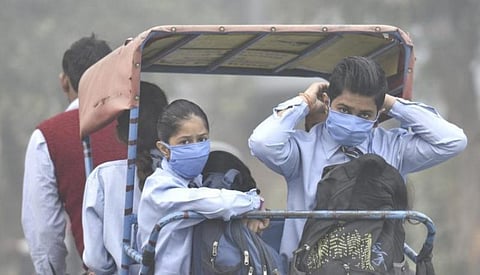
- Home
- Live Blog
- Breaking News
- Top Headlines
- Cities
- NE News
- Sentinel Media
- Sports
- Education
- Jobs

Taipei: Higher levels of air pollution may be linked to a heightened risk of developing oral cancer, which includes cancers of the lips, tongue, cheeks, floor of the mouth, hard and soft palate, a study has found. While mouth cancers have been associated with smoking, drinking, human papilloma virus, and the chewing of betel quid (“paan”), the study added to this list increased levels of fine particulate matter (PM2.5) and to lesser extent, ozone.
“This study, with a large sample size, is the first to associate oral cancer with PM2.5... These findings add to the growing evidence on the adverse effects of PM2.5 on human health,” said researchers including Shou-Jen Lan, Professor at the Asia University, in Taiwan. Exposure to heavy metals and emissions from petrochemical plants are also thought to be implicated in the development of the disease while PM2.5 is known to be harmful to respiratory and cardiovascular health. Previously, high air pollution has been linked to a host of health problems, from an increased risk of dementia to asthma and even changes in the structure of the heart, with recent research suggesting there is no “safe level” of air pollution. Men exposed to the highest levels of PM2.5s had an increased risk of mouth cancer. Compared with men exposed to average annual PM2.5 levels of 26.74 micrograms (µg) per cubic metre (m3) of air, those exposed to concentrations of 40.37 µg/m3 or higher had 43 per cent greater odds of developing the disease. (IANS)